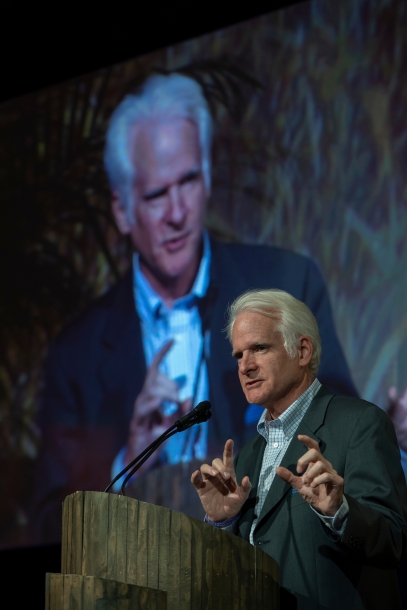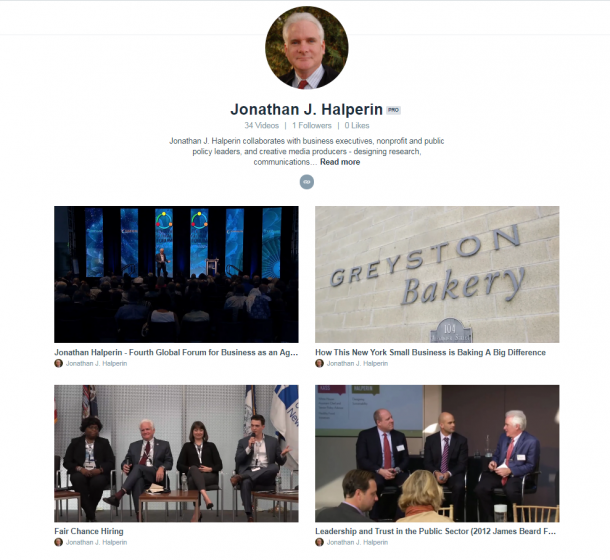You are here
Regulating the Playing Field
As Hurricane Sandy shifted the national conversation in the closing days of the U.S. 2012 presidential campaign, so too has the rampage at Sandy Hook Elementary School interrupted the partisan machinations over government spending and taxation. As we look forward to 2013 and beyond we thus have a rare moment to reflect and observe that these issues share a common root: the respective roles of government and business to shape our future as people and as a national community.
In violation of the investing maxim that past results are no indication of future returns, many business leaders cling to the shibboleths of the past to secure their future. They argue vehemently against regulations, and against government spending more generally, insisting that industry can best police itself and that regulation stifles growth, innovation, and job-creation. And in the same breath these lobbyists for the past ride in elevators, work in offices, eat food, drive on roads, and use communications bandwidths regulated for the public good by none other than the government.
Businesses large and small also regularly evoke the notion of a level playing field – and insist that the only role for government in the market is to level that field. But level for one party can be decidedly sloped for another. So this is generally nothing more than a cover for seeking or maintaining competitive advantage from government support – from tax breaks in the energy sector to federal support for medical research.
From fabrics to firearms, the question of how to allocate responsibility across the value chain is central to the success both of private enterprise and governments not only in the US but also around the world. See especially “From Triangle to Tazreen: A Century of Lessons,” by Francesca Rheannon in CSRwire on the recent plant fire that killed 112 in Bangladesh, and Nicholas Kristof in The New York Times on the carnage in Connecticut (“Do We Have the Courage to Stop This?”).
Beyond these two issues, here are four more crying out for resolution – and resolution that would benefit business, people, and the national and global community.
Nanotechnology, long out of the barn, is now being chased by various regulatory agencies. Like GMOs before it, nanotechnology holds great promise but is fraught with risk, both known and unknown. Although late to the table, government can help businesses drive down that risk with a smart regulatory framework that directly addresses both short-term needs and potential long-term consequences.
Fracking, hydraulic fracturing of the earth’s deep rock formations, holds out the potential to drive down American energy costs and thus boost production and on-shore manufacturing while creating jobs and billions of dollars of revenue for private companies as well as debt-ridden governments. But the risks associated with the vast quantities of water used to crack the rock, the chemicals used in the fracking, and the global consequences of an energy independent America are poorly understood. While state governments are awakening to this opportunity/challenge, the federal government needs to engage and drive a robust discussion about what level means in the field of fracking.
The search for climate stability, of course, continues to cry out for U.S. and global leadership. As politicians dither, the ice caps melt opening new shipping routes across the Arctic, storms increase in intensity, coral reefs bleach, dustbowl conditions return to the U.S. Midwest, sea-levels inch upwards, scientific panels affirm and re-affirm that the changes are real and man-made, and yet many business leaders continue to act as if this greatest risk to their ongoing operations can be handled by committees and pronouncements. (More soon in another dispatch on the “up the middle, up the middle, up the middle” approach to climate stability.) But there are some companies (see the signatories to the Prince of Wales’ Climate Communiqués) looking forward and as leaders they also are calling on governments to step in and … level yet another playing field.
And last, it is time to again eliminate hunger in America. More than 50,000,000 people in this nation of plenty do not know from where they will get their next meal; fully 49,000,000 receive government assistance through the prodigiously named Supplemental Nutrition Assistance Program (SNAP). While this national outrage persists, elected officials in Washington vote against the hungry and even now have begun to seek to balance the budget on the backs of these least fortunate Americans. See the Food Policy Action report card to see who voted how on key food legislation in the 112th Congress.
Hungry Americans, many of whom vote and have real reason to vote, are not even on the traditional playing field and thus have no interest in whether or not it is level. But for some of those who tend the fields on which we play, the pure pursuit of self-interest seems to be all that matters. While enlightened self-interest can be a huge and beneficial incentive, self-interest as the singular guiding principle makes for a dog-eat-dog world. It also makes predicting the future much easier; as Garrett Hardin explained in 1968, it leads with grinding certainty to the destruction of the global commons upon which we all depend.
We have some important choices to make in 2013.
- jonathan.halperin's blog
- Log in or register to post comments

